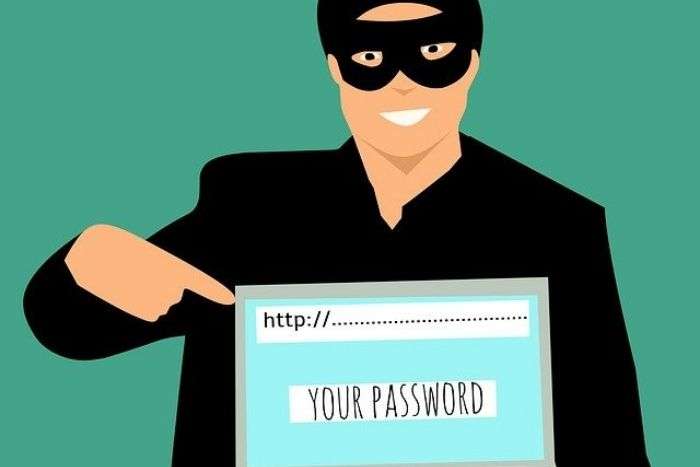Since the emergence of the COVID-19 pandemic, data breaches have become more common than we’d like to admit. According to a Harvard Business Review study, a single data breach could cost an American business $4.35 million. In contrast, the number of cyber attacks on small businesses has increased within the last decade.
The cost of cybercrimes to small businesses reached $2.4 billion in 2021, according to Axios.
As 46% of data breaches threaten small companies with fewer than 1,000 employees, you must safeguard your data by following the best cybersecurity practices.
A good place to start would be to train your workers to always adhere to these simple, easy-to-remember guidelines highlighted below.
- Implement a dedicated firewall.
A dedicated firewall serves as the first line of defense between you and cyber criminals. As per FCC recommendations, setting up a firewall will prevent hackers from infiltrating your systems and stealing your clients’ sensitive information.
Besides an internal firewall, you should install an external one to ensure additional safety. Moreover, we suggest you invest in quality antivirus packages for added security.
Antivirus and anti-malware software solutions will protect your employees from falling victim to any hacker online. An extra step towards protecting your data would be to install a dedicated VPN within your office to prevent data leaks and identity theft.
- Educate your employees properly.
As a company owner, you must take measures to encourage your employees to study cybersecurity through online degrees. With online education, they can easily manage their academic and professional lives while learning new ways to keep themselves up-to-date on the subject.
When hiring a professional, ensure they possess the relevant experience and education credentials needed to understand the dynamic industry of cybersecurity.
An Online Cyber Security Masters degree should be a requirement when hiring to develop strategies for defending your network, protecting data, and making your organization’s infrastructure breach-proof.
- Secure your internet networks.
Improve the security of your internet connection by installing a safe, hidden, and encrypted Wi-Fi system. If hackers manage to penetrate your Wi-Fi system by hacking the router, it leaves the network vulnerable to data breaches.
To prevent a data breach, you must:
- Regularly change your Wi-Fi passwords
- Monitor network traffic and review logs of suspicious activities
- Regularly update the firmware of your Wi-Fi router
- Disable remote management of the router to prevent unauthorized changes
- Disable Wi-Fi Protected Setup (WPS)
- Back up all your data regularly
A simple way to avoid losing your data is to regularly back up all your information. Nowadays, automated backups do not even require human interference.
Even if you have uploaded your data to the cloud, it’s important to back it up someplace else. Several business owners have this habit of backing up their data in flash drives to keep their backup files out of harm’s way. They store these backup drives in secure locations to avoid hacking.
- Control access to sensitive data
Giving all or most employees unrestricted access to the company’s data merely increases the risk of misuse. Surveys show that 7 out of 10 businesses are plagued with insider attacks where current or former employees perpetrate data theft, fraud, and sabotage.
That’s because one-third of companies give employees access to excessive information while 1 in 4 ex-workers still have access to company data. Business owners must ensure employees have limited access to the company’s data. That’s how you’ll avoid data breaches by disgruntled workers.
- Control access to your devices
Employees shouldn’t leave their work laptop unattended and have separate user account with strong passwords. Also, employees should not log in to their accounts via public Wi-Fi. These simple precautions will prevent unauthorized personnel from stealing the company’s data or downloading malware into the office equipment. Moreover, all employees should report immediately if office equipment gets stolen or snatched.
- Avoid opening suspicious emails.
It’s a no-brainer that employees should avoid opening, sharing, or responding to suspicious emails. These emails are a common source of phishing attacks, malware infections, and office data breaches. A worker shouldn’t click on unverified links and follow these email safety guidelines at work:
- Don’t respond to emails from an unknown sender
- Avoid opening email attachments sent by unverified sources
- Verify the identity of the sender if they claim to be your coworker
- Report it to your IT department so they may look into the matter
- Use a spam filter to avoid receiving unsolicited emails from potential scammers
- Ensure password best practices
Password practices in American workplaces are abysmal, as 69% of workers have this bizarre habit of sharing their passcodes with colleagues. Many employees choose weak, easy-to-guess, common words or phrases as their passwords.
Here’s what you should tell your workers about passwords:
- Choose a unique password for an account
- All of your passwords should have different unique passwords
- Use a password manager so you won’t ever forget your passwords
- Make passwords at least 12-character long with letters, numbers, and symbols
- Regulate update your passwords and never share them with anyone over the internet
- Use multi-factor authentication
Even with strong, complicated passwords, you can’t guarantee that employees won’t make minor slip-ups occasionally. Who knows when an employee makes a mistake and leaks your sensitive data?
That’s why using multi-factor authentication must be a priority. Your employees can connect their accounts with their phone numbers, so every time someone tries to log in from an unfamiliar device, they’ll get an SMS alert. Two-factor authentication (2FA) significantly enhances the safety of your data online!
Conclusion
Cybersecurity threats aren’t limited to big corporations; small businesses, too, are prone to cyberattacks now and then. Surveys show that a small business can collapse within six months after a data breach. That’s why your employees must follow the best practices mentioned in the blog.
Choose strong passwords, don’t open suspicious emails, back up all the files regularly, and encourage employees to take cybersecurity courses from reliable institutes.
We hope you learned something from this article. If we missed anything, please tell us in the comments below.



